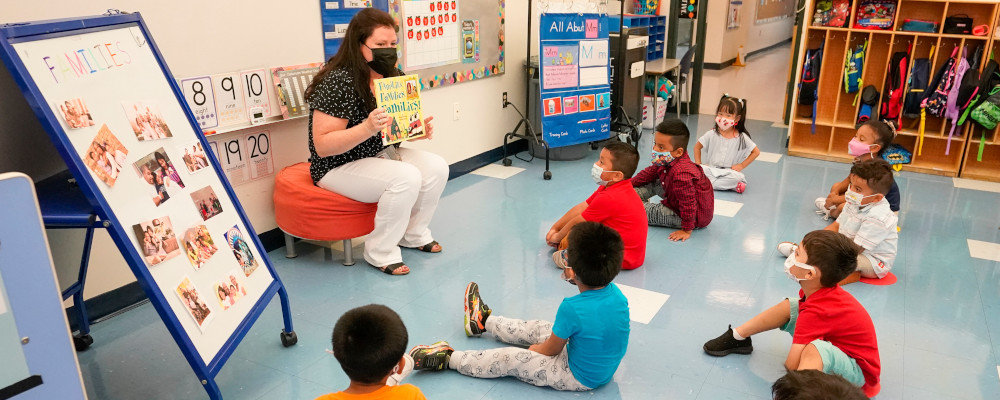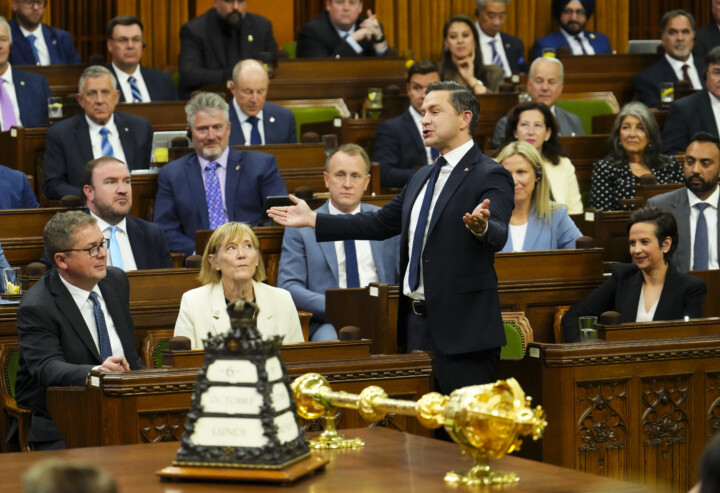Last month, a small Twitter frenzy erupted over images purporting to show an Alberta school teacher’s lesson on the difference between appropriate and inappropriate opinions. Assuming the slides shared on social media were representative, the lesson amounted to telling pupils that left-wing opinions are good, and progressive social reformers “great,” while conservative opinions are inappropriate.
I can’t comment on the veracity of the allegations, but if true, this would count among the more moderate examples of unreasoned progressive bias in our education system. The problem isn’t limited to the content of particular lessons, nor is it confined to a handful of socially enterprising teachers. It is, to borrow a pet phrase of the Left, systemic, and it permeates everything from teacher training and professional development, to the content of curricula, to assessments, discipline policies, and classroom pedagogy. But the solution is not to try to “de-politicize” education, as conservative politicians sometimes suggest. Nor is it to empty education of its normative content or mandate political neutrality in the curriculum.
Education is necessarily political, in the deepest sense, and is one of the most direct ways that a civilization preserves and transmits its history, culture, knowledge, and norms. Every political system has an interest in educating its members to acquire the habits and character that will support its goals, for better or worse.
A state may wish its subjects to be pious or obedient, ambitious or war-like. It can encourage them to be individualistic or community-oriented, grateful or aggrieved, closed or open-minded, temperate or avaricious. A government may decide that its young people should be as blank slates, unburdened of their weight of history and custom, so that society can be more quickly and thoroughly transformed. Or it might want the next generation to be rooted in tradition so that they can draw from the unearned wisdom of the past, and inoculate themselves against the vagaries of popular opinion.One way or another, the kind of education our citizens receive will determine the sort of society we will collectively inhabit. If we care at all about the shape and character of that society, we had better take an interest in how the souls of the next generation are being formed.
To take the analysis further, every approach to education is underpinned by a set of highly consequential metaphysical and anthropological ideas about the nature of reality and man’s place in it. It’s at this level that modern education went awry, and if we want to return it to its proper ends, we have to begin with first principles.
In the West, the classical education tradition is generally understood to have begun in Athens with Plato and Aristotle, before being formalized in the Medieval era, and remaining dominant well into the 19th century. The definition could be expanded to include other traditional models, such as the education system of imperial China, grounded in Confucian doctrine. In all cases, classical education was premised on certain assumptions about the nature of reality, which can be imperfectly summarized as follows:
- That reality objectively exists and is good;
- That there is an underlying order to it;
- That its laws and qualities are at least partly apprehensible through human reason and intuition;
- That, as a part of creation, we are subject to its laws;
- That reality contains an intangible moral dimension;
- That we should endeavour to understand and attune our souls to it.
Reality, in other words, is not free of bias, and it dictates that there are better and worse ways of living. Truth is better than falsehood; justice better than injustice; virtue better than vice; beauty better than ugliness. Education was not about teaching us to ignore these differences, but to discern them correctly so that we might live virtuously and in conformity to nature.
It’s possible to reject these premises, but it’s not possible to do so while remaining neutral. These are binary propositions: either there are immutable moral standards, or there aren’t, and there is no middle ground. A person who says that education should be value-neutral, or that we must refrain from judgement, is making a judgement about the superior value of neutrality (and, whether they mean to or not, acting as handmaid to the triumph of nihilism, materialism, and moral relativism). It’s a contradictory position that fails on its own terms, and when it infects the education system it produces incoherence at scale.
To treat neutrality as the highest good, one either has to reject the moral dimension of reality (e.g. there exists justice and injustice, right and wrong, and one is better than another) or else reject the idea that human beings should try to discern and live according to what is right. Absent any external standards for judging between good and evil or right and wrong, our lives lose narrative cohesion and meaning. Social cooperation becomes impossible because no course of action can be judged any better than another. Your country is being attacked by a hostile foreign power?—Best maintain an open mind. The euthanasia regime is being expanded to include depressed children?—Who are we to judge! When faced with injustice, falsehood, exploitation, or oppression, we would have no language to describe it, nor standing to condemn it.Relatedly, those who say that education should be purely practical and focused on career readiness are also revealing a definite, not-at-all-neutral metaphysical view, defined by materialism and the rejection of metaphysics. They are implying that the physical, immanent world is the only one that matters, and the only measure of a good society is the rate of workplace participation. Intangible things—like friendship, beauty, love, wisdom, piety, and the eternal fate of the soul—are irrelevant or marginal concerns at best, and non-existent at worst.
The problems afflicting our education system don’t stem from a lack of neutrality but from the triumph of false axioms and bad metaphysics. For the better part of two millennia the classical model was the dominant mode of education. By the turn of the 21st century, an entirely different set of axioms had established themselves, permeating all the way down to early childhood education. Whether they’re aware of it or not, a generation of teachers has been steeped in the progressive educational theories of John Dewey and his more radical successors, who viewed education as a vehicle for delegitimizing a society’s cultural inheritance and dismantling its customs and institutions.
Large school boards across the country are now mandating that their employees receive further training to advance those goals. York District School board, for example, tells teachers that they must accept—without requesting evidence or proof—that education is a tool of white supremacy, and commit to “struggling” against and dismantling it. In a job posting for the position of director of education, the country’s largest school board says its policy is to “disrupt systems of whiteness” and “dismantle colonial structures” while centering the perspectives of LGBTQ2+ people. The Halton District School Board tells teachers they must acquire a “critical consciousness” and guide their students to repudiate the “cultural norms, values and institutions” of their society.

Critical consciousness, or conscientização, is a term coined by enormously influential Marxist education reformer Paolo Freire. His seminal work, Pedagogy of the Oppressed, overflows with approving references to Hegel, Lenin, Mao, and Che Guevara. It’s also the third most-cited work of social science in history. In it, Freire elaborates a comprehensive (if incoherent) metaphysical view that is diametrically opposed to the classical one. While he accepts that reality objectively exists, he does not accept it is good or well-ordered. Nor does he believe that it is fixed, or that human beings are subject to its laws. To the contrary, Freire holds that reality is oppressive and disordered, but that it is essentially under man’s control, and can thus be transformed at will.
Freire rejects the idea of nature, human or otherwise, and also denies that there are any external standards for discerning good and evil. Whereas classical education attempted to apprehend and describe reality—ideally approaching it with a spirit of philosophic wonder, reverence, and love—the goal of education for the critical theorist is not to describe truth as it exists, but to transform it: “the world—no longer something to be described with deceptive words—becomes the object of… transforming action.”
According to Freire, critical consciousness is attained when a person becomes aware of the “oppressive nature of reality,” and his or her status as an oppressed person, and thereafter takes action to overcome reality and destroy the limitations it imposes on us. It demands that its practitioners move through life with an acute sensitivity to grievance, and that they view all social relations through the lens of power and oppression. The acquisition of critical consciousness is, without exaggeration, the only value that Freire says teachers should impart to students. Teaching actual things—like how to decode words, or calculate the area of a circle, or what happened in 1812 —is dismissed as oppressive, because the act of teaching implies that teachers know something that pupils don’t, thereby reinforcing a hierarchical relationship.
Classroom discipline is likewise understood as a form of domination, as is any attempt to socialize children into the habits and virtues that might equip them for a happy or fulfilling life—things like self-control, temperance, magnanimity, fortitude, or sacrifice. Freire considers that these are false virtues promoted by “the oppressor” to prevent the development of critical consciousness. A capacity to bear suffering or accept limitations with grace is especially to be avoided because it is tantamount to acceptance of oppression. A person possessed of a critical consciousness does not approach the world with love, or reverence, or wonder, but with an attitude of contempt and a spirit of conquest.
Once you understand the metaphysical worldview that now dominates the education field, all sorts of seemingly disparate trends begin to make sense. Why do up to a third of students identify as belonging to an oppressed gender or sexual minority? Why do a growing number of them believe that biological sex is mutable? Why do so many complete high school unable to write a coherent paragraph and knowing so little about the world? Why are school authorities eliminating the disciplinary tools that teachers need to maintain safe and respectful learning environments? Because they have adopted a deliberately destructive Marxian metaphysic—and they may not even know it.
Recommended for You
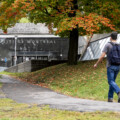
DeepDive: How Canada’s postsecondary institutions can pivot to become the growth engines our economy needs
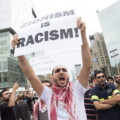
A definition of racism that targets Jews is racist
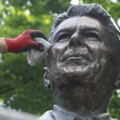
In defence of Ronald Reagan

Vancouver Parks’ Harry Potter freak out and how the media covers ‘controversial’ events

